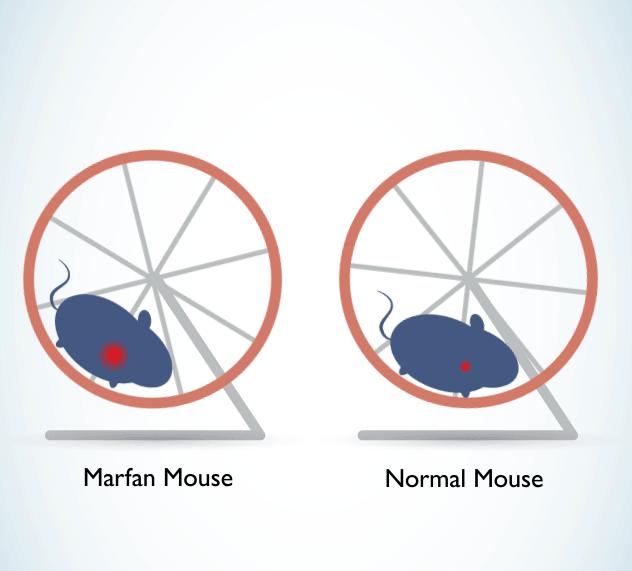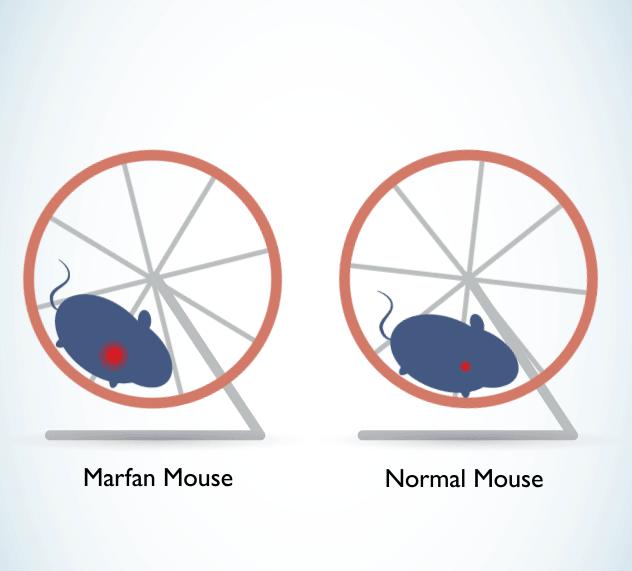
Credit: Johns Hopkins Medicine
In experiments with mice that have a rodent form of Marfan syndrome, Johns Hopkins researchers report that even modestly increasing stress on the animals' hearts — at levels well-tolerated in normal mice — can initiate heart failure. The findings, described August 4 in the Journal of Clinical Investigation Insight, revealed a novel cellular pathway in heart tissue that leads to heart failure and may serve as a model for a new standard of treatment for children with this aggressive form of Marfan syndrome.
Marfan syndrome is a genetic disorder that affects connective tissue throughout the body, elongating limbs, fingers and toes, for example. However, its worst effects are in the heart's blood vessels and valves. Aortic enlargement, heart valve leaks and heart failure — marked by heart enlargement and weakened pumping action — are all potentially life-threatening.
The Hopkins team's interest in the mouse model grew out of the clinical experience of children with Marfan seen at The Johns Hopkins Hospital over decades.
###
To view the animation that accompanies this release please click here. To view b-roll footage and an interview with Dr. Rouf please click here.
Media Contact
Rachel Butch
[email protected]
410-955-8665
@HopkinsMedicine
http://www.hopkinsmedicine.org
Original Source
https://www.hopkinsmedicine.org/news/media/releases/researchers_reverse_heart_failure_in_marfan_mice





